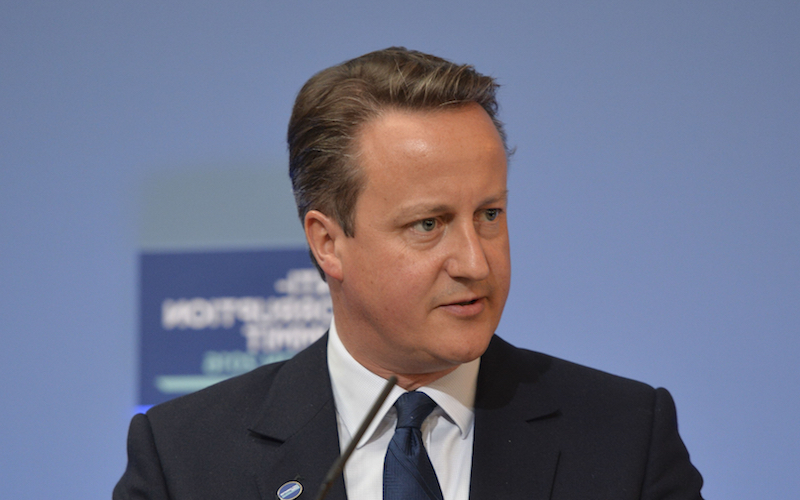
Brexit is the Only way to Reform the EU
With the Brexit vote looming in the next month, it is still very hard for both the layman and the well informed to cast judgement given the swirl of misinformation out there.
The Venice accord gives guidance on the matter that essentially revolves around neutrality. [Code of Good Practice on Referendums adopted by the Council for Democratic Elections at its 19th meeting (Venice, 16 December 2006) and the Venice Commission at its 70th plenary session (Venice, 16-17 March 2007)]. This document sets out how referendums should be conducted, not much of which has been adhered to by the Cameron Government who wasted about £9 million of taxpayers’ money sending propaganda leaflets to everyone in the land supporting Bremain.
The arguments for Brexit or Bremain seem to change on a daily basis and are distorted by the egotistical clash between David Cameron and Boris Johnson, who both have their hidden agendas in vigorously supporting opposing camps.
The International Monetary Fund whose top dog, Christine Lagarde faces a French court case investigation for her role in alleged fraud and embezzlement is keen that Britain remains in the EU and out-going President Obama has waded into the debate saying that Britain would be at the back of the queue in terms of trade deals if we were to leave. Their biased interventions are not correct and have been largely ignored by the electorate, as reflected in the polls.
It has also been claimed that Brexit could lead to WWIII by the Prime Minister and affect global growth through a destabilising effect on emerging markets, despite the biggest threat coming from a slowdown in China and the unwinding of QE and higher interest rates which are unlikely to happen.
I will be voting for Brexit on the 23rd June as I believe that it will be beneficial for Britain, the EU as well as the Global Economy. My rationale is that Brexit will lead to higher Global economic growth that we will all benefit from as the EU is not reaching its peak economic performance because of its high unemployment rate of 10%. Of particular concern is the high level of youth unemployment and the subsequent disenfranchisement of young people across Europe.
The EU needs to readdress its delirious ambition of “ever closer Union” which is tied to their failed monetary project, the Eurozone. Its failure is exhibited by the precarious situation that Greece and other Southern Mediterranean Countries have found themselves in, which has led to mass unemployment coupled with low or negative economic growth rates.
Quite clearly, Europe cannot cope with the uniformity and the latent Federal structure being undemocratically slapped down by the EU as this has led to ever increasing asymmetries which are chained to the single currency. Asymmetric shocks occur because of cross-national differences in social, economic, political and cultural factors. These are arrogantly ignored by Brussels. These are widening in the EU and are at odds with the ethos of the EU which is to level the playing field. The reverse is happening.
So we are at a crossroads. Either the EU needs to reform or it will fail like the Euro has failed. Cameron’s negotiations are benign and not even a short-term fix as they are unlikely to be ratified into a treaty change, and would not save the EU now. The EU project in its current form is doomed.
When Britain first signed up for the European club we thought at the time that this was just free trade but we have been dragged unceremoniously along into chaotic oblivion by the hidden agendas of the Federalists in Brussels who see standardisation as the way to bulldoze the way forward to create an undemocratic Super State, at a huge social and economic cost.
Unemployment is way too high in Europe and is a direct result of being directly or indirectly chained to a botched monetary union. The centre piece of current EU thought shrouds the failed Euro project.
Deployment of the unemployed has been shown to lead to higher economic growth. This needs to happen in the EU with immediate effect. The association between unemployment and economic growth was put forward by Arthur Okun in the 1960s, capitalising upon centuries old economic thought on the matter and has been formally established as Okun’s law who formally defined the link between Unemployment and Economic Growth
Okun’s law “is intended to tell us how much of a country’s gross domestic product (GDP) may be lost when the unemployment rate is above its natural rate.” It explains that “the logic behind Okun’s law is simple. Output depends on the amount of labor used in the production process, so there is a positive relationship between output and employment. Total employment equals the labor force minus the unemployed, so there is a negative relationship between output and unemployment (conditional on the labor force).”
Ex US Federal Reserve Bank Chairman, Ben Bernanke (2012), summarized Okun’s law basic concepts in a speech At the National Association for Business Economics Annual Conference, Arlington, Virginia, March 26, 2012:
“That rule of thumb describes the observed relationship between changes in the unemployment rate and the growth rate of real gross domestic product (GDP). Okun noted that, because of ongoing increases in the size of the labor force and in the level of productivity, real GDP growth close to the rate of growth of its potential is normally required, just to hold the unemployment rate steady. To reduce the unemployment rate, therefore, the economy must grow at a pace above its potential. More specifically, according to [the] currently accepted versions of Okun’s law, to achieve a 1 percentage point decline in the unemployment rate in the course of a year, real GDP must grow approximately 2 percentage points faster than the rate of growth of potential GDP over that period. So, for illustration, if the potential rate of GDP growth is 2%, Okun’s law says that GDP must grow at about a 4% rate for one year to achieve a 1 percentage point reduction in the rate of unemployment.”
Clearly, the EU is underperforming in this task to shore up economic growth through the lowering of European unemployment, which is currently running at a tragic 10.2% in the Euro Area.
Their focus in Brussels is upon an ever closer political union and not the unemployed which brings misery and depravity to tens of millions across Europe. In my mind, it can only do this by reducing asymmetries and respecting national sovereignty that Britain and other nations need to reclaim.
EU growth could be much higher which would benefit the EU, Britain and the World Economy if they deregulated their labour markets similar to Britain and recognised national sovereignty as well as ‘one size does not fit all.’ Unemployment is a direct result of the failed common currency.
The Commission saw nothing but blue sky for the Euro when it was first introduced over a decade ago. The unevenness or asymmetries have become greater, risking and slowing down economic recovery trajectories. Go to Athens. See the failed EU project:
the Euro. This common currency is now anchoring future EU policy to saving face rather than lowering unemployment and raising economic growth. Kicking the can down the road is not the solution!
Thus, Brexit should be seen as a first step to reforming the EU that cannot be achieved through its chaotic undemocratic channels. This hopefully will lead to other countries holding referendums and leaving and increasing the prominence of the European Free Trade Area. It’s a shame that it has come to this but Brexit will benefit all. It’s a win-win situation. Only then will the EU reform.
This is the only way the EU unelected bureaucrats will listen!
In the meantime, the fanfare will continue for the foreseeable future. Hold on tight!
Opinions are the author’s own and not of his employers.

